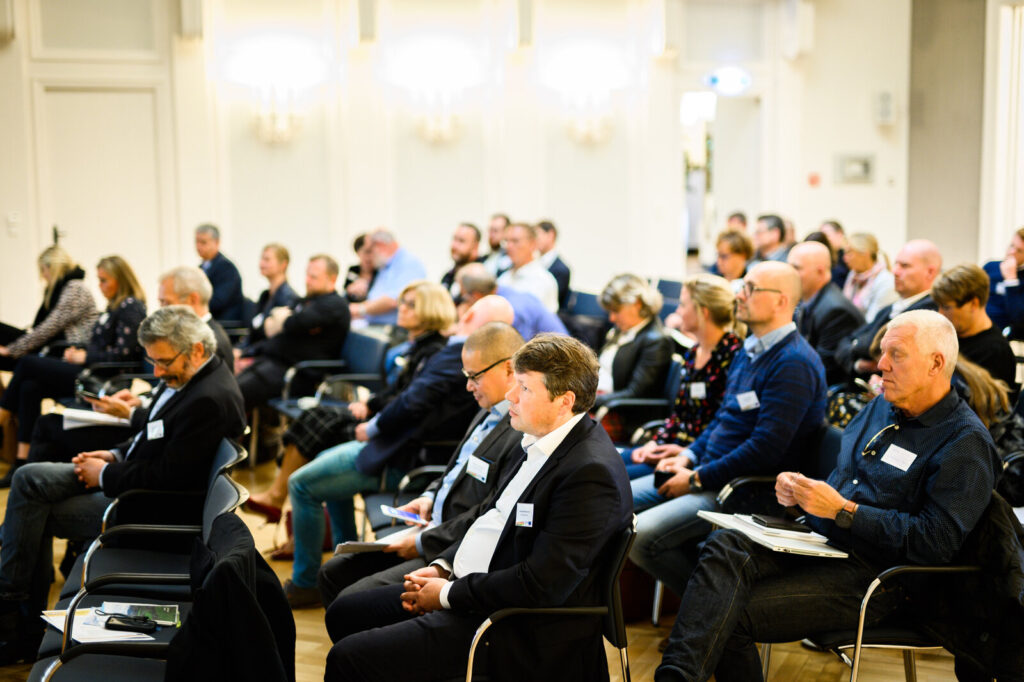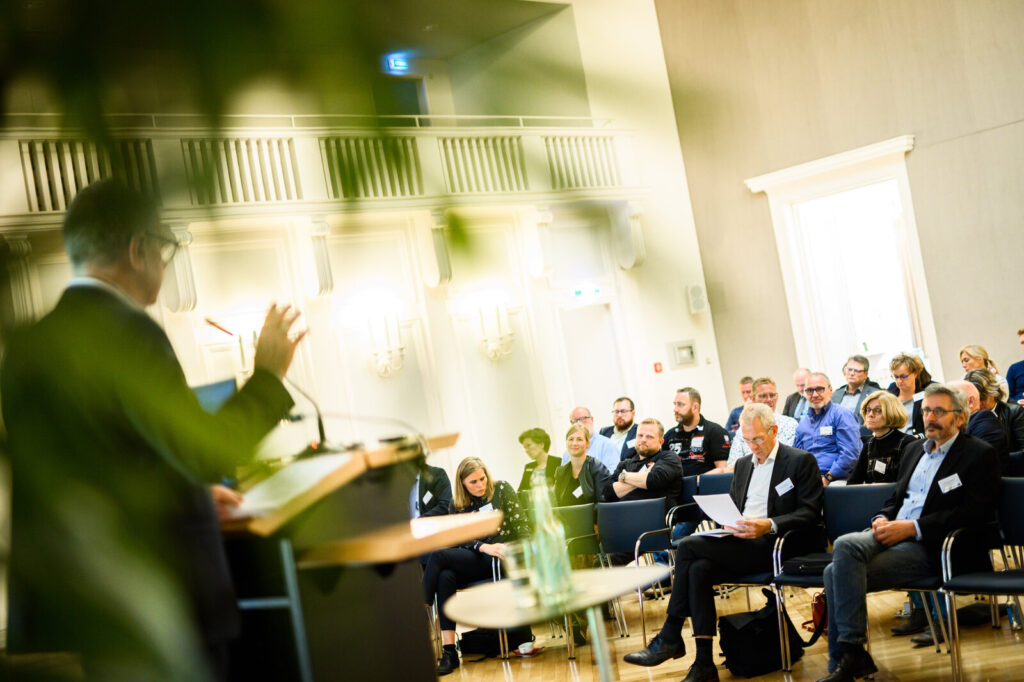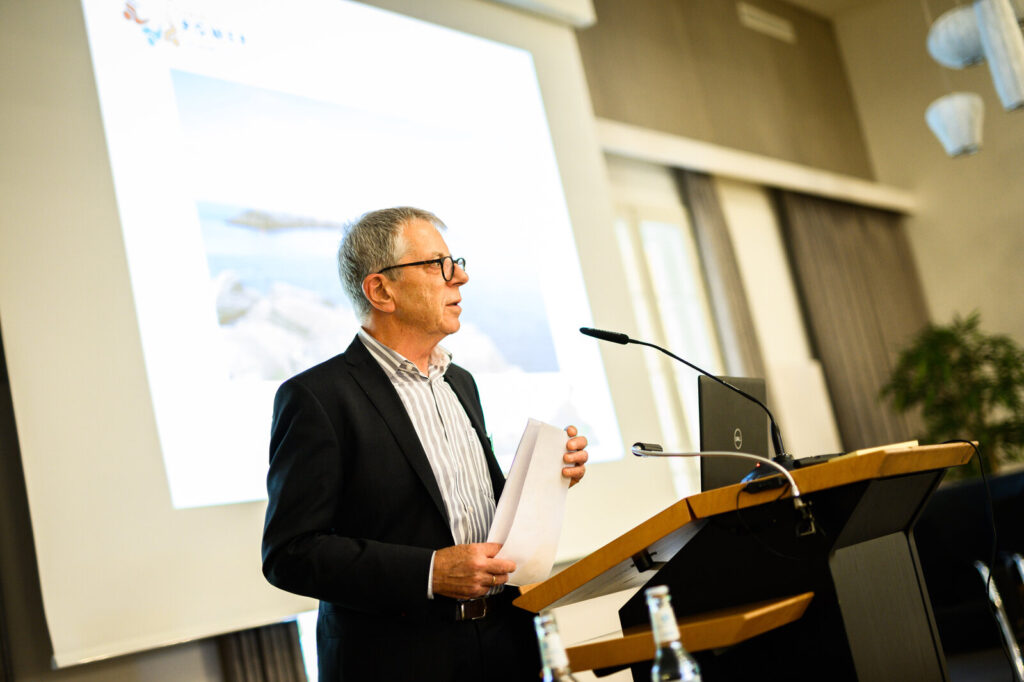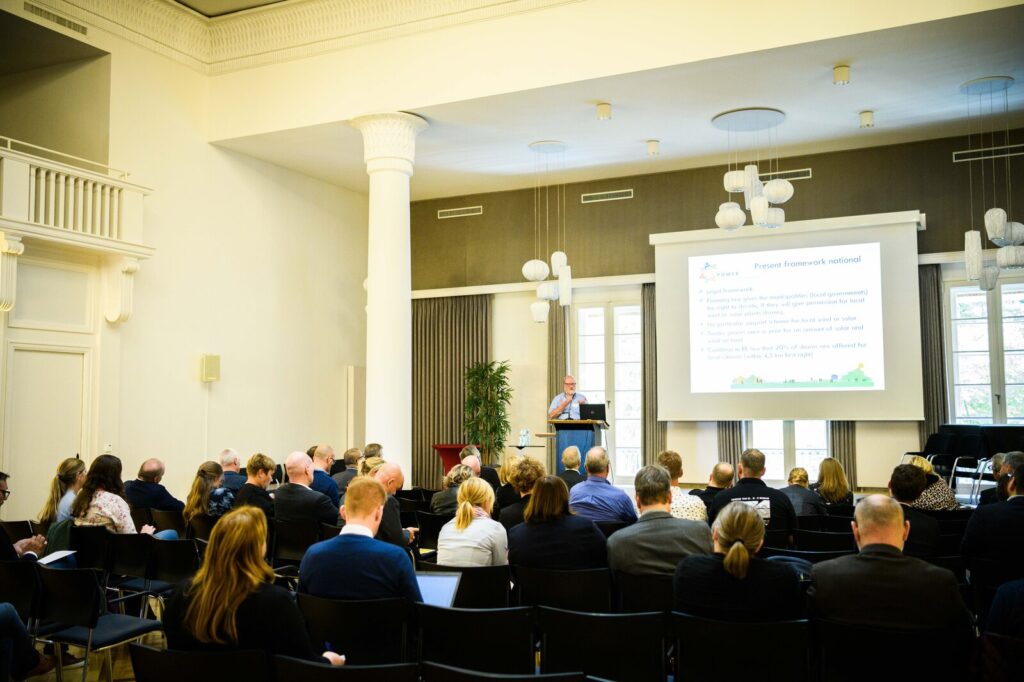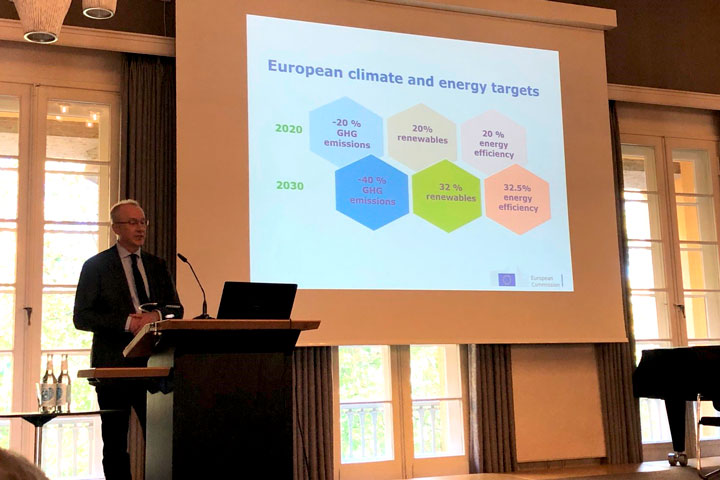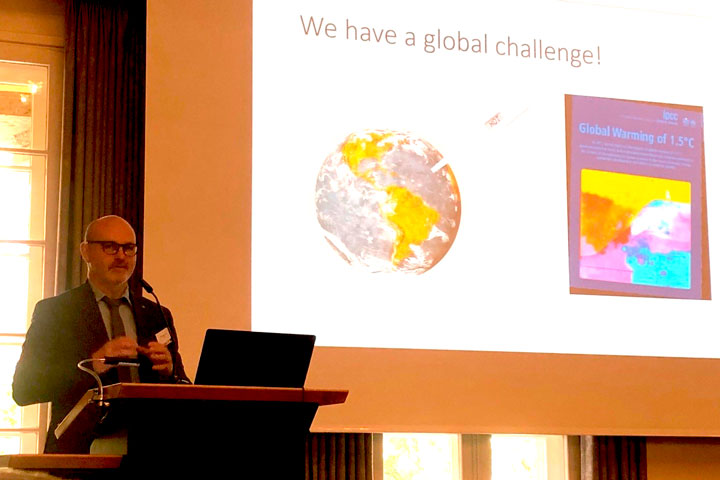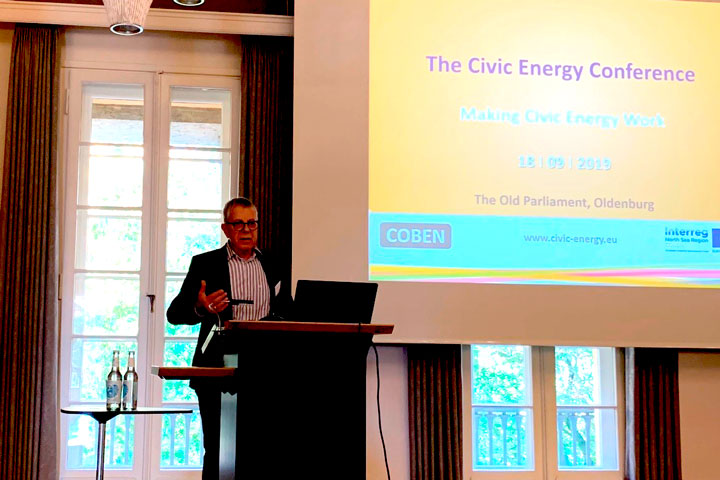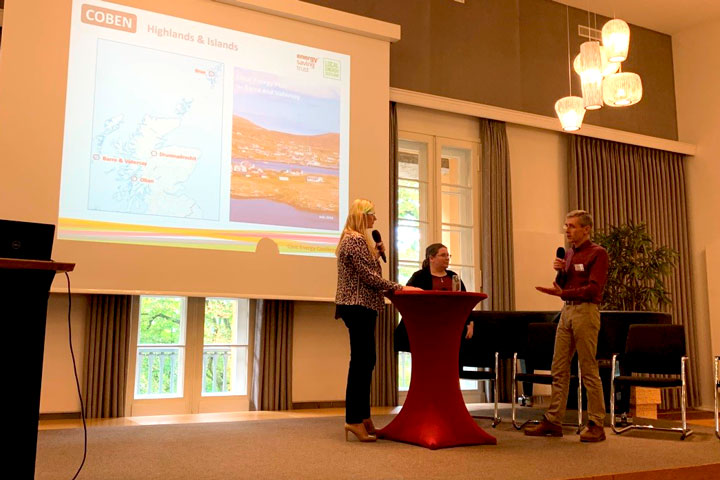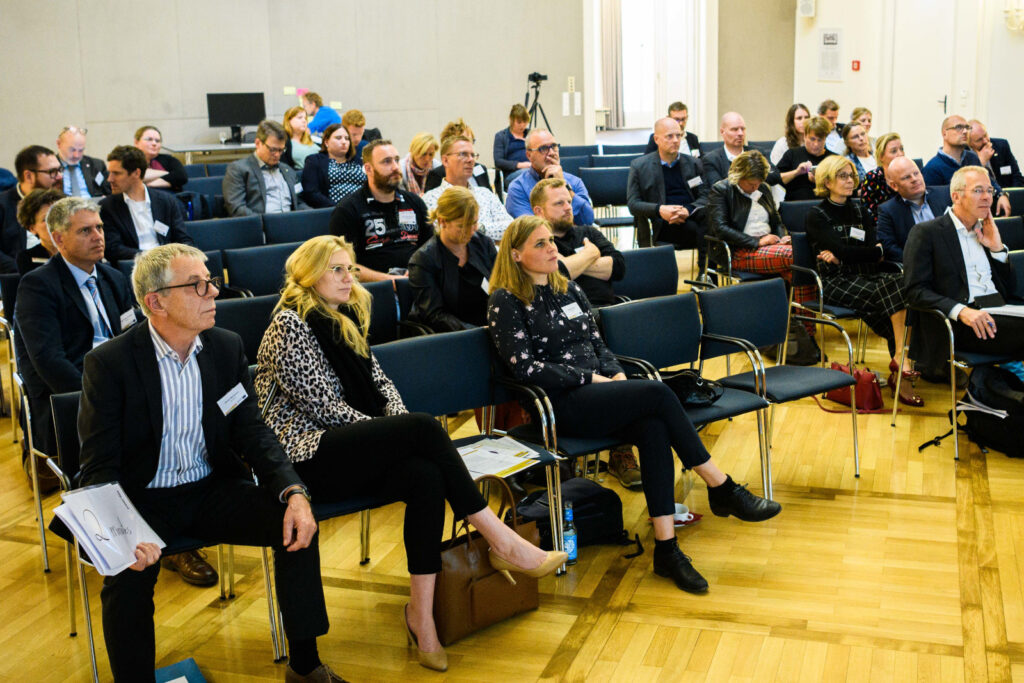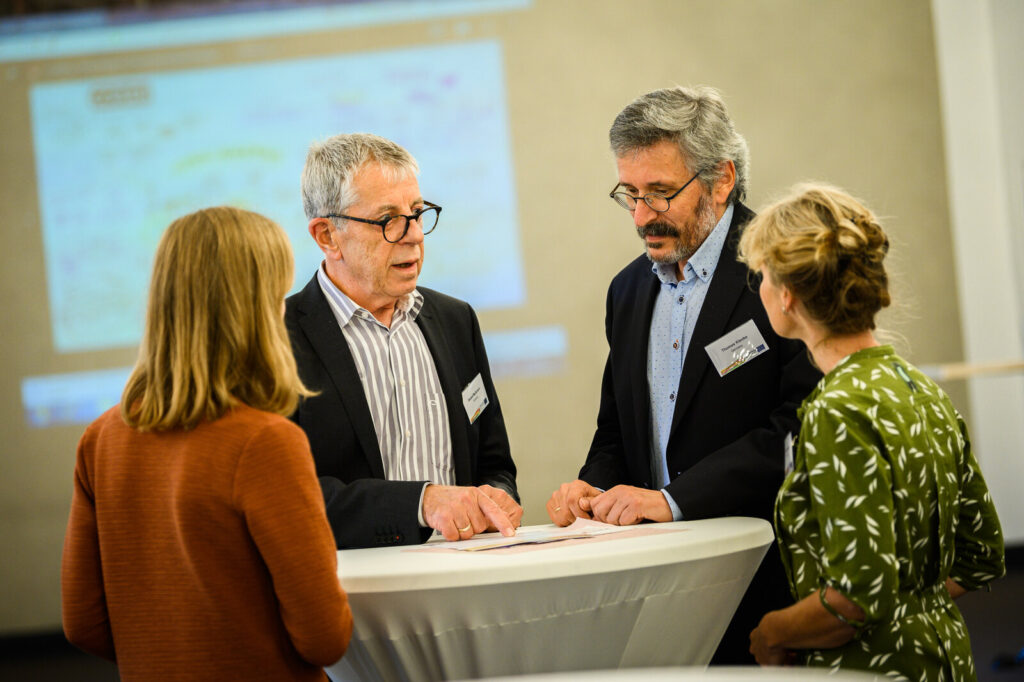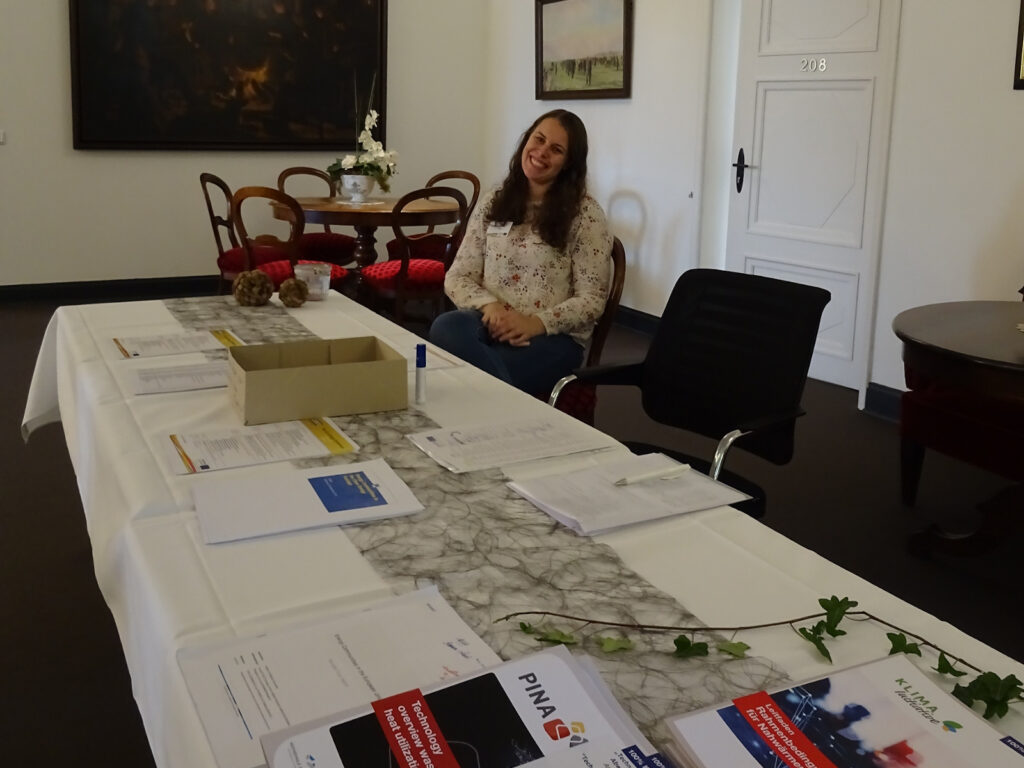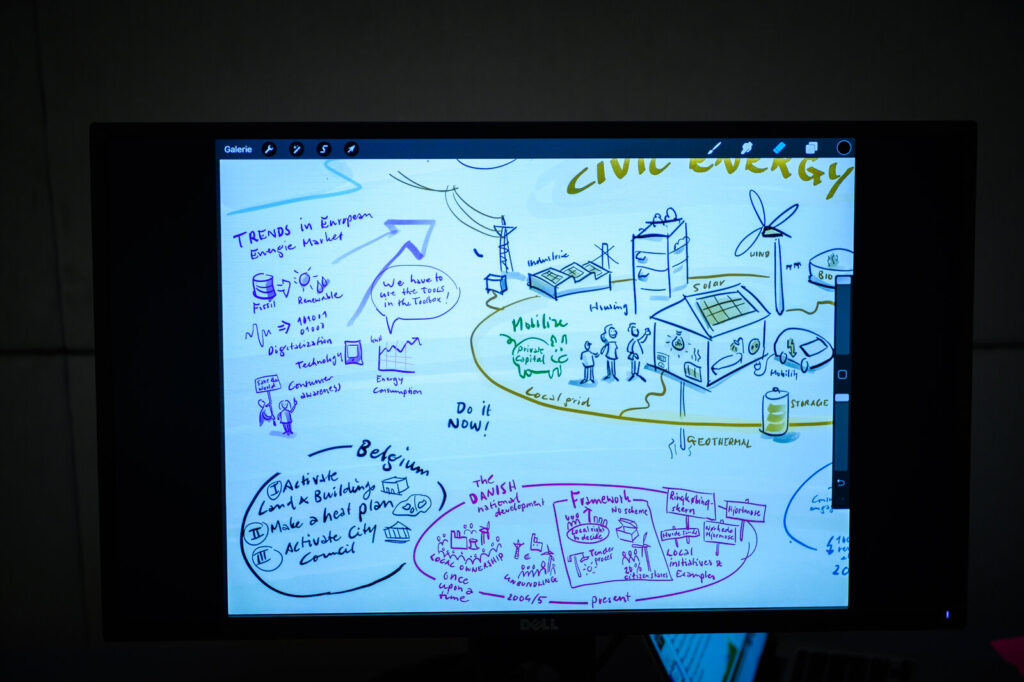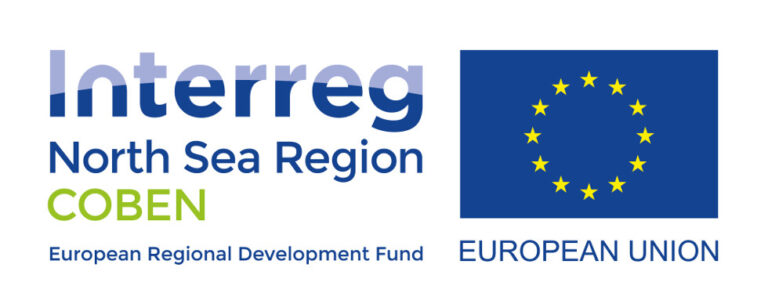How can citizens and communities stake their claim as drivers of the energy transition? Together with key European, national and regional policymakers and stakeholders the Conference examines the implications of the recently adopted new European energy market design and its promise of a “level playing field” between centralized and local energy systems. The Conference also presents effective solutions and support for civic energy stakeholders and highlights the range of benefits to be gained for communities.
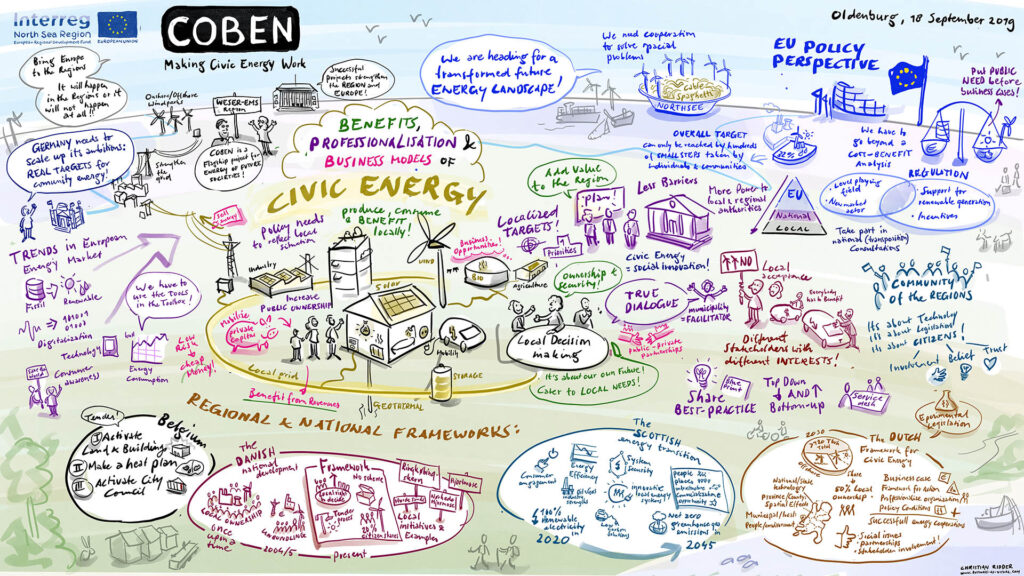
Programme
| 09:00 | Registration and coffee |
| 10:00 |
|
| 10:20 |
Session 1: European perspectives on civic energy
|
| 12:00 | Lunch |
| 13:00 |
Session 2: Regional and national frameworks for civic energy
|
| 14:15 | Coffee |
| 14:45 |
Session 3: COBEN contributions to mainstreaming civic energy
|
| 16:00 | Outlook: Future directions for Civic Energy Anna Skowron, Senior Policy Officer Climate and Energy, World Future Council |
| 16:20 | Closing remarks |
| 16:30 | After-conference cocktail |
Key messages
- We are heading for a transformed energy landscape. The European Commission has adopted a new design of the EU electricity market that introduces a level playing field between all market actors and new rights and opportunities for civic energy communities and renewable energy communities. The deadline for transposition into national law is 30 June 2021.
- Net zero emissions are the overriding target of civic energy (CE) promotion. Civic energy initiatives replace centralized power by clean, locally embedded power and at the same time support community development.
- Energy is a public affair. Local benefits can only be delivered to communities through more power to local and regional governments. The energy transition will happen in the regions or it won’t happen at all.
- The old (2004) EU neoliberal market rules on electricity suppressed community energy and favoured privately organized utilities, thereby neglecting climate and societal considerations and benefits. It’s time to put public needs before business cases and extend decision making beyond cost-benefit analyses.
- Civic energy is value-driven and needs to integrate community and regional development goals.
- Community and citizen ownership of the energy system has tripled in the past six years. Co-ownership in the region of 50% + is the key to addressing community needs and the shift to renewables.
- CE solutions are inclusive and integrative. For civic energy to work, citizens need to be involved at every planning stage.
- CE business models differ from conventional energy business models since they serve different locally defined needs and objectives; they require professional management.
- Some North Sea countries, notably Germany, still need to upscale their climate ambitions and set real targets for civic energy.
- „Experimental legislation“ can help plot out the new energy landscape. Competent locally based initiatives can act as implementation pilots.
- A Civic Energy Forum at European level could support municipalities in implementing ambitious civic energy policies beyond the restrictions in running time and community outreach of funded projects.
- The energy transition is more a social than a technological issue. A great deal of social innovation is needed to manage the switch to civic energy.
Impressions
